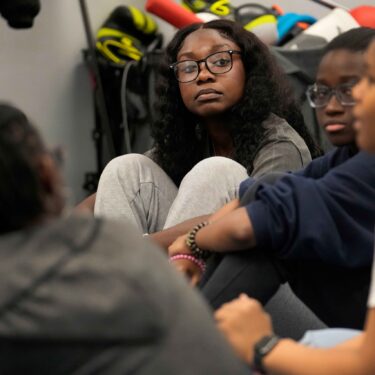The Supreme Court ruling that ended affirmative action left the college essay as one of the few places where race can play a role in admissions decisions. To capture the impact on the ruling for students applying to college, Collin Binkley, Annie Ma and Noreen Nasir interviewed several students who spoke of how much was riding on the writing assignment.
Some changed their essays to emphasize race even if other experiences felt more central to their lives, and some described feeling pressure to exploit their hardships. Most powerfully, the students read their final essays on camera. In video shot and produced by Nasir, they shared intimate details about their relationship with their natural hair or the feeling of finding solidarity in a leadership group of students that look like them.
The story ran on front pages of newspapers in Decatur, Ill.; Mattoon, Ill.; Westerly, R.I.; and Chattanooga, Tenn., and AP member newsrooms accessed the story over 500 times.
Visit AP.org to request a trial subscription to AP’s video, photo and text services.
For breaking news, visit apnews.com.




